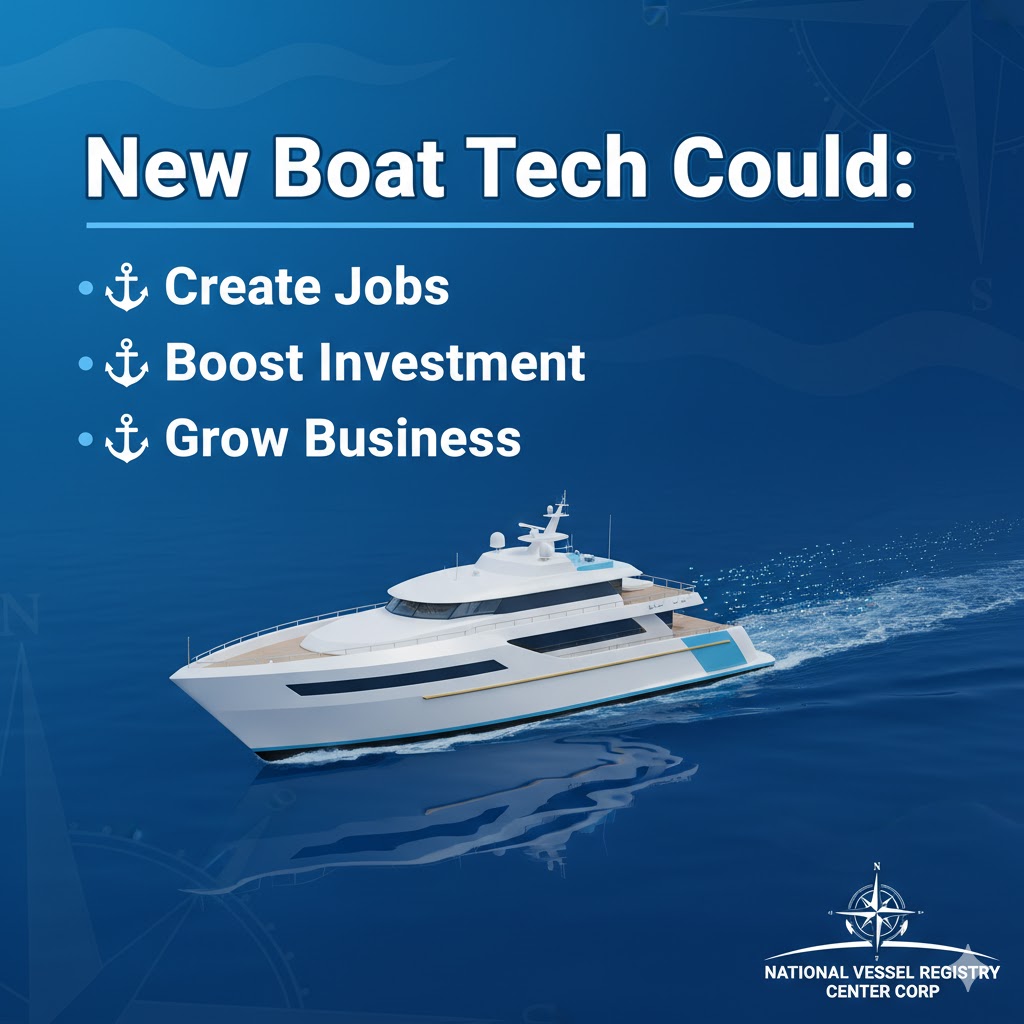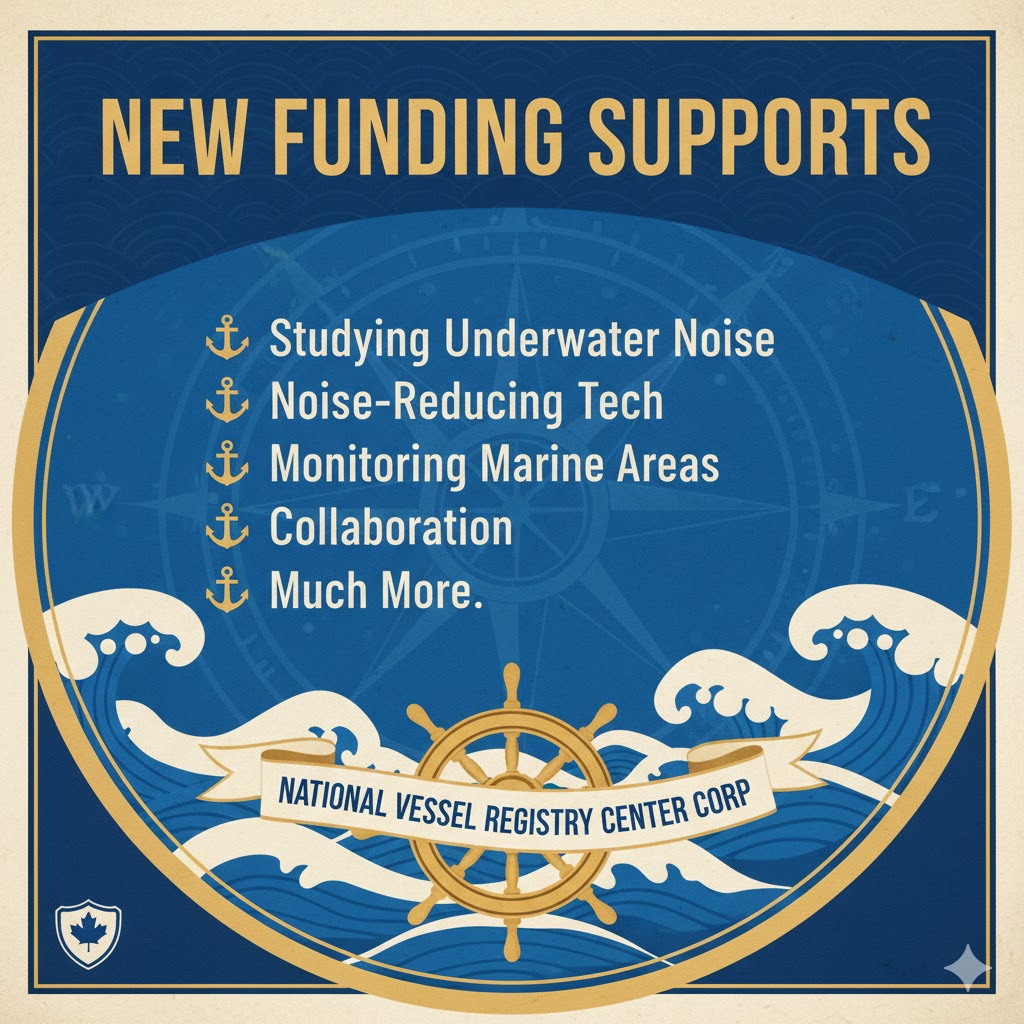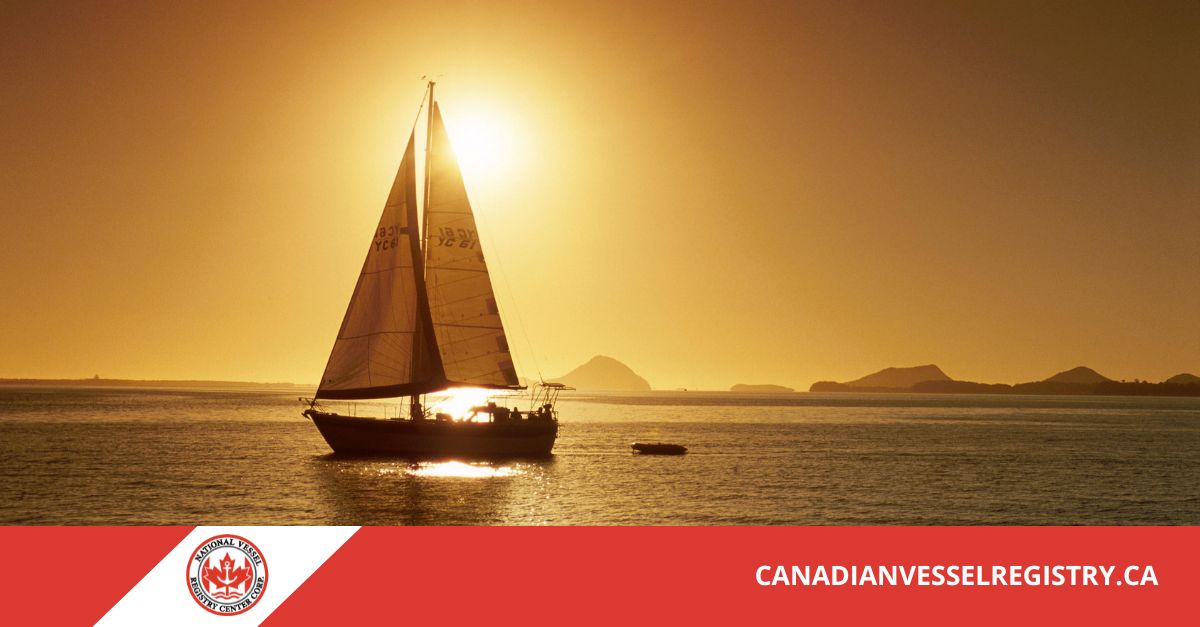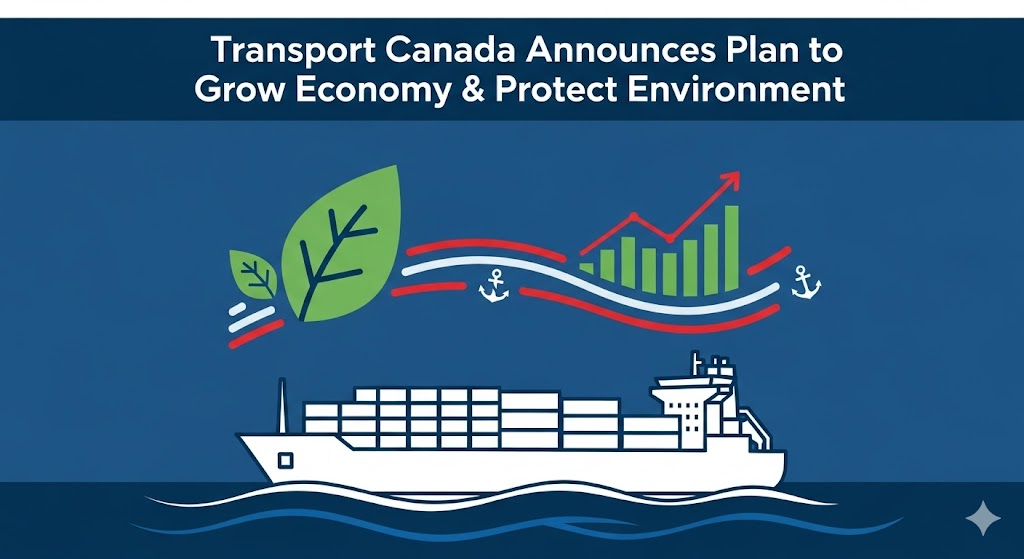Transporting goods, traveling between provinces, or enjoying time on the water is a central part of life for so many boat owners across the country. Recent developments from Transport Canada outline new funding and initiatives aimed toward reducing underwater noise from boats and improving marine ecosystems.

A recent press release highlighted this commitment. These steps show the government is working to support both economic growth and environmental protection.
Transport Canada: Growing the Economy While Protecting Marine Life
The announcement focuses on a multi-million dollar investment to research and address underwater noise generated by boats. Ocean noise affects marine mammals, particularly whales, that rely on sound to communicate, hunt, navigate, and maintain social bonds.
Marine industries are essential contributors to the national economy, but their future strengths depend on maintaining a thriving marine environment. The initiative recognizes this balance and looks to support both sides of the equation.
What the New Funding Will Support
The funding will be used to:
- Study how underwater noise affects whales and other marine mammals.
- Develop and test noise-reducing technologies for engines, propellers, and hull designs.
- Monitor marine areas where noise levels may be especially harmful.
- Collaborate with scientists, coastal communities, Indigenous nations, and environmental organizations.
- Support data-driven decision-making to shape future regulations.
This approach demonstrates how research, engineering, and collaborative planning can work together to support a healthy marine ecosystem—while keeping critical maritime industries operating sustainably.

How Economic Growth Is Supported by This Transport Canada Plan
Healthy waters support tourism, commercial fishing, shipping, and recreational boating. Investing in noise reduction promotes these industries in several ways.
Innovation and Manufacturing Benefits
Testing new forms of boat technology can:
- Create engineering and manufacturing jobs.
- Encourage investment in updated boat equipment.
- Improve reliability and performance for boating businesses.
These projects represent not just environmental stewardship, but also innovation. Sustainable technology can be marketed globally, benefiting both Canadian firms and coastal communities.
Sustaining Marine Tourism
Whale-watching, sport fishing, and sightseeing all depend on thriving marine life. If whale populations continue to decline due to interference caused by underwater noise, tourism sectors may suffer. Safeguarding these ecosystems helps ensure:
- Guides, bareboat charters in Canada, marina operators, and hospitality businesses continue to flourish.
- Coastal communities retain their cultural and economic identity.
- Boaters will continue to have rich natural environments to explore.
Economic growth is strongest when built around long-term sustainability rather than short-term gain.
How This Transport Canada Initiative Helps the Environment
Marine mammals are particularly sensitive to underwater sound. Many whales rely on low-frequency communication that can be disrupted by shipping engines. Noise can make it harder for them to:
- Locate food
- Navigate along migration routes
- Care for young
- Avoid danger
Reducing noise pollution can support species recovery and biodiversity. That leads to stronger ecosystem functions, cleaner waters, and healthier shorelines.

Collaboration with Indigenous and Coastal Communities
The announcement highlights the value of working with Indigenous nations and local communities who have deep, long-standing relationships with coastal environments. Their knowledge will:
- Strengthen planning and conservation.
- Create stronger local participation in decision-making.
- Ensure cultural respect and shared stewardship.
Protecting waters is not simply a scientific or commercial question—it is a cultural responsibility too.
Encouraging Safer, Cleaner, and More Responsible Boating
As these new steps roll out, boat owners have a role to play in reducing noise and maintaining waterways.
Small changes in boating habits can lessen underwater noise, reduce pollution, and make waterways safer.
Practical Boating Steps That Support Conservation
Boaters can help by:
- Maintaining engines to reduce vibration and noise output.
- Reducing speed in areas where whales or other marine mammals are present.
- Avoiding sudden acceleration or sharp propeller movements.
- Choosing quieter propulsion methods where possible.
- Keeping a respectful distance from wildlife.
Safe Navigation Practices on the Water
In addition to supporting marine life, safe navigation protects passengers and other boaters. Good habits include:
- Checking weather conditions before departure.
- Keeping communication equipment in working order.
- Staying aware of marine charts and water depths.
- Ensuring onboard lifejackets and emergency supplies are available.
Responsible boating is about safety as much as enjoyment.
Transport Canada Documentation and Registration: Staying Compliant
When boating in Canada, regulatory compliance is part of responsible operation. The type of documentation you need depends on the nature and size of your boat, as well as how it is used.
This may include:
- A pleasure craft licence if the boat is primarily for recreation.
- Canadian boat registration if the boat is used for commercial activities, travels internationally, or requires proof of ownership at a national level.
- Being entered into the small boat register if applicable to the boat’s operations and classification.
None of these are interchangeable. Each has a specific purpose and is relevant under different circumstances as well as Canadian maritime laws.
We offer a portal that helps you access the correct forms. You fill them out securely, and we submit them for processing so the paperwork reaches the correct authorities efficiently.
The Larger Outlook: Transport Canada and Beyond
Protecting marine wildlife while growing national industries is not a contradiction. It is a long-term strategy that strengthens both the environment and the economy. The steps recently announced demonstrate how research, collaboration, and responsible boating practices can work side by side.
When boat owners support sustainability efforts and keep documentation current, everyone benefits:
- Coastal communities
- Marine ecosystems
- Tourism and commerce
- Future generations of boaters
The water connects us all, and maintaining it helps secure a thriving future.

